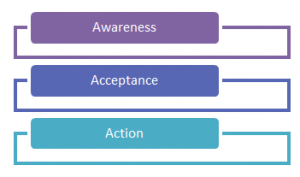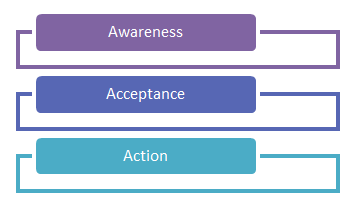 Too many leaders conclude feedback has failed when they do not see immediate change in the person they give the feedback to. This conclusion has one serious flaw – feedback should never be delivered with the intent of creating change in someone else. When leaders see feedback conversations like mirrors reflecting what the team member sounds and looks like from their perspective, then success is created.
Too many leaders conclude feedback has failed when they do not see immediate change in the person they give the feedback to. This conclusion has one serious flaw – feedback should never be delivered with the intent of creating change in someone else. When leaders see feedback conversations like mirrors reflecting what the team member sounds and looks like from their perspective, then success is created.
When a leader or manager gives feedback they are simply holding up a mirror and it is important for us to remember people may not like what they see, at first. When receiving feedback it helps to see the mirror as a precious gift that presents fabulous opportunity for learning and growth.
Remember the person giving the feedback is encouraging growth, learning and personal development. Pushing back on them and not heeding (or hearing) the truth of the conversation only impedes progression and effectiveness.
So why does feedback fail? It’s when this kind of wrong intent is brought to the conversation. Flip it and you create success – acknowledge and expect that feedback provides awareness. Acknowledge that it takes time for people to accept it and in the process of doing this conflict may need to be resolved. When giving feedback reframe expectations around action – by making it OK for people to take time to process the feedback and move to a place where they are ready to accept it. Once feedback is accepted and conflict resolved only then are people ready for action and this is where managers and leaders step into coaching.
Feedback conversations bring awareness – and for many on the receiving end of such conversations it is hard not to defend yourself, justify your behaviour, and deny what the other person is saying…………..and all these reactions prevent movement to acceptance.
So concentrate on bringing the right intent in the first place. Then be aware of the five critical factors why feedback conversations fail to even achieve “awareness” because people remain far too defensive to even receive the message:
1. Wrong time
2. Poor delivery
3. Incorrect person
4. Inadequate preparation
5. Deficient details.
Wrong time
Feedback conversations are best delivered “real time” while the actions and performance underlying the feedback are still fresh in the minds of everyone – person giving it and person receiving it. If it is left too long then denial is the most prevalent reaction – bringing dispersions to the accuracy of what the person giving the feedback actually remembered and saw.
Poor delivery
When feedback conversations are delivered using evaluative and judgemental language it is increasingly difficult for people to receive the message constructively; instead people have a tendency to become defensive and react emotively. Deliver the feedback with descriptive statements using “I” language and you increase the chances of the feedback being received constructively.
Incorrect person
If you didn’t see the behaviour and hear the language or receive the output then it is NOT your feedback to give. Too many managers and leader get swept into the precept that they have to “fix” issues within the team – if a person in your team is having trouble working with someone else in the team then they need to engage directly in a feedback conversation, not you as the leader of the team. If you engage in the conversation it is merely “hearsay” and you become a mediator…..this is NOT feedback. For those who think it is and have the conversation in this way and then conclude feedback failed – it didn’t because it wasn’t feedback in the first place!
Inadequate preparation
Feedback conversations are not natural and even for the most educated of us require an investment of time to prepare. Take time to check out your:
• intent
• language
• objective
• specific observations that you are able to recall with accuracy.
Deficient details
For feedback conversations to be effective they require specific details and these are attained through direct observation. To provide specific feedback you need to gather evidence and we use an acronym to remind us:
C complete
A accurate
V valid
E exists.
For both positive and developmental feedback to be useful it needs to be specific. General feedback is useless (and damaging) for the person receiving it.
For example general feedback like:
“You are a good listener” is meaningless because while the person knows and likes they have received the label of “good listener”; they have no idea what they did to earn this label. Therefore they have no certainty on how to replicate this performance and continue to earn this label.
We recommend you give them highly specific feedback – like:
“When I was talking in the meeting I noticed you:
• Nodding to show agreement
• Questioning to clarify
• Summarising what I had said at appropriate times.
This made me feel like you were really listening to me and the impact is I value talking to you and having you involved in meetings with me.”









